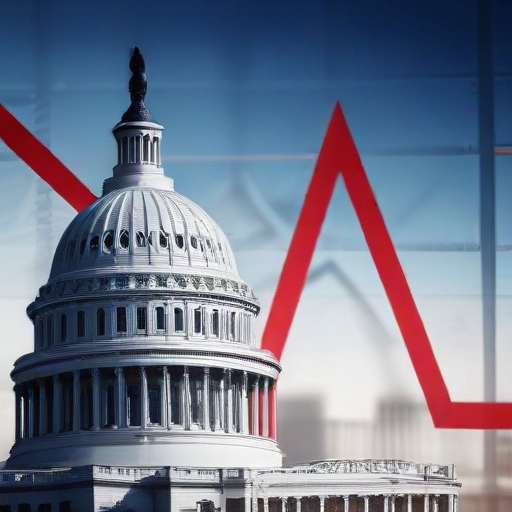In light of recent political developments, Goldman Sachs suggests that if Kamala Harris becomes the Democratic presidential nominee, her economic policies are expected to closely mirror those of President Biden. This comes as President Biden officially exited the race amid mounting pressure following a less-than-stellar debate performance against Donald Trump. He subsequently endorsed Vice President Harris, who has confirmed her candidacy and garnered support from prominent figures such as California Governor Gavin Newsom and New Jersey Governor Phil Murphy.
Goldman Sachs analysts, led by chief economist Jan Hatzius, indicate that there will likely be no significant changes in the Democratic Party’s fiscal and trade policy agenda should Harris take the lead. The firm estimates that the odds of securing a Democratic victory in the upcoming presidential election have increased slightly, now sitting just below 40%.
Analysts also note that taxes will be a focal point in the upcoming years, particularly with the impending expiration of certain provisions of the Tax Cuts and Jobs Act in 2025. Whoever wins the presidency will ultimately determine the fate of these tax cuts and any potential new tax measures.
Goldman’s specific forecasts regarding fiscal policy indicate that:
– A proposed tax rate of 39.6% on individuals earning over $400,000 may be under consideration, up from current rates of 35%/37%.
– The proposed corporate tax rate is likely to rise to 28%, though Goldman expresses skepticism about Congress approving this increase, suggesting a compromise rate closer to 25%.
– Additionally, there is an idea to raise the Social Security and Medicare tax rate on incomes exceeding $400,000 from the current 3.8% to 5%.
As Harris seeks to solidify her position as the nominee, speculation arises about potential candidates for the vice presidential role, with individuals like Governors Shapiro and Cooper and Senator Mark Kelly being considered.
This political shift could open doors for new voices and perspectives in the Democratic Party, fostering hope for a more engaged and inspired voter base as the election approaches. The continuity in economic policies under Harris could also offer a sense of stability for investors and the market during this transition period.
In summary, while the political landscape shifts with Biden’s endorsement of Harris, experts anticipate a steady economic approach, providing a blend of familiar and evolving strategies as the Democratic Party moves forward.
